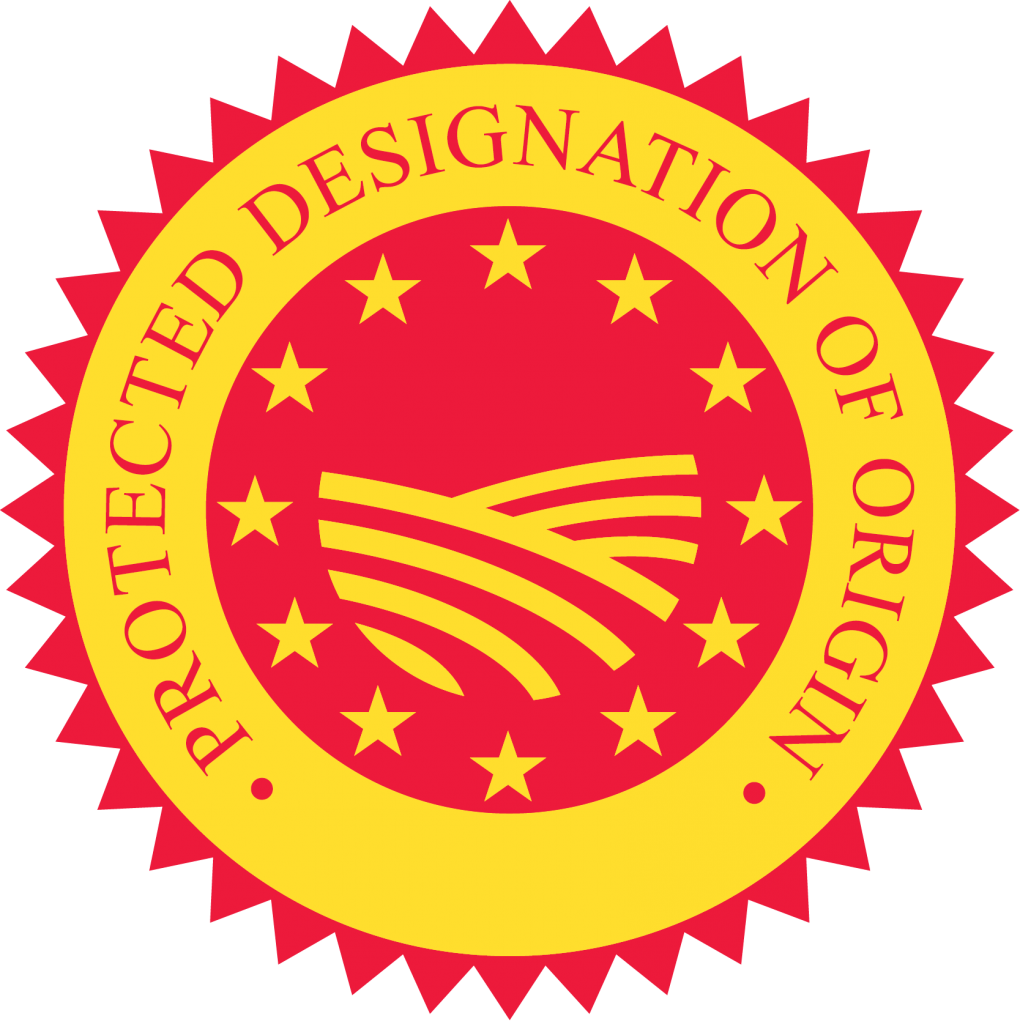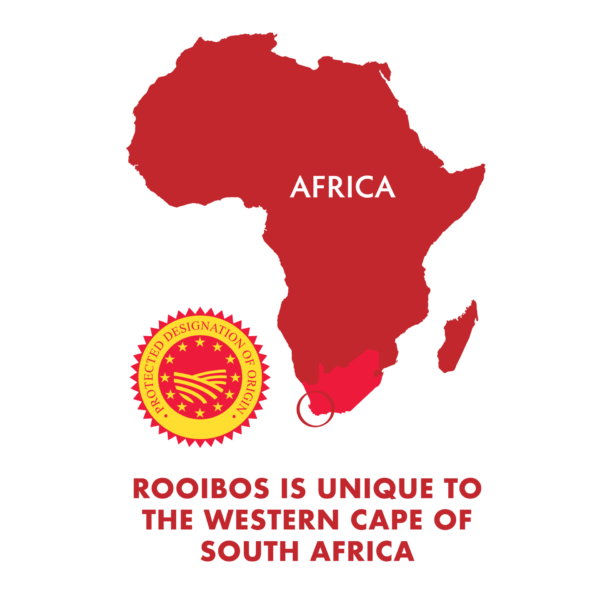Product of Origin (PDO/GI)

Rooibos: Protected by Origin
In 2021, the European Union granted Rooibos full PDO status under Regulation (EU) No 2021/865. This officially limits the use of the name “Rooibos” to tea produced from the aspalathus linearis plant in designated parts of South Africa. These areas include:
- The Cederberg mountain range and surrounding districts
- Nieuwoudtville in the north to Malmesbury in the south
- Areas such as Clanwilliam, Citrusdal, Piketberg, Wupperthal, Vredendal, Vanrhynsdorp and the Suid-Bokkeveld
These regions form part of the Cape Floristic Region, known for its unique fynbos biome and dry Mediterranean climate. Rooibos does not grow naturally anywhere else in the world.

What is Geographical Indication (GI)?
A Geographical Indication, or GI, is a status given to products that come from a specific place and have special qualities because of where they are made. GI protection stops others from using the name if their product does not come from the right region.
In 2014, Rooibos became the first African food to receive GI status in the European Union. This meant the name "Rooibos" could only be used for tea grown in South Africa’s Rooibos-producing areas.
What is Protected Designation of Origin (PDO)?
PDO is a stronger form of GI. It means that the entire process—growing, harvesting, and packaging—must happen in the defined area, and producers must follow traditional methods. Only then can the product carry the official PDO label.
Why This Matters

Name
Protection
Only tea grown in the approved South African areas can be called Rooibos.

Quality Assurance
All Rooibos with the PDO label must meet strict production standards.

Local
Impact
This supports jobs, protects local knowledge, and builds rural economies.

Trust
for Buyers
The PDO seal confirms the tea’s authenticity and origin.
Carmién Tea is a certified Rooibos PDO producer.
All our Rooibos is grown, processed and packed in the officially protected area.

